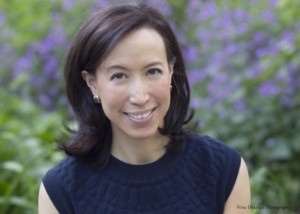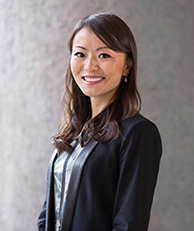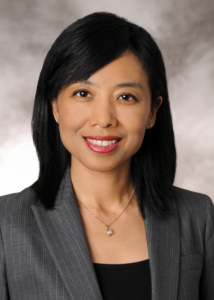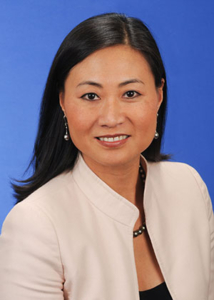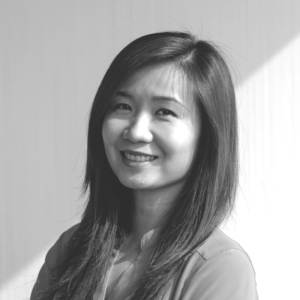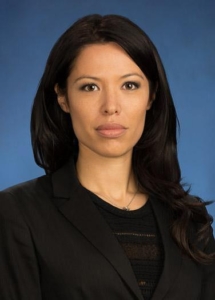 Welcome to The Glass Hammer’s Celebration of Asian Heritage Month! All month long we will be profiling successful women here in the US who have Asian heritage as well as spotlighting some amazing women in Asia and discussing what it means to work there.
Welcome to The Glass Hammer’s Celebration of Asian Heritage Month! All month long we will be profiling successful women here in the US who have Asian heritage as well as spotlighting some amazing women in Asia and discussing what it means to work there.
According to Kim Posnett, a Managing Director in the Technology, Media and Telecom (TMT) group in the Investment Banking Division at Goldman Sachs, diversity is something she became accustomed to early on in her life. “I was born in Nashville, Tennessee and raised in New York City. I grew up as an American kid in multi-ethnic family with a Vietnamese mother and Swiss father,” she explained.
“I was always comfortable being different. More importantly, I grew up with the instinct to bridge gaps and find commonalities among different people. That has carried over into my professional career and has been very helpful,” Posnett added.
Career in Investment Banking
“I had a non-linear career path,” said Posnett, who attended Yale University to study History and Theater. After graduating Yale, Posnett moved to California in her early twenties to work in the media and entertainment industry. Then, in her late twenties, Posnett decided to make a career shift, and attended The Wharton School of Business to study finance and earn her MBA. After graduating from business school, Posnett joined Goldman Sachs. Early in her career, Goldman Sachs asked her to cover internet and eCommerce companies, which she has been doing ever since. Posnett noted, “I am fortunate to work with the leading internet, eCommerce, software and technology companies that are disrupting their industries through innovation and technology.” She finds that working with visionary founders, CEOs and CFOs is the most rewarding aspect of her job, and is something she has remained passionate about throughout her decade of working as a banker in the industry.
“I feel most proud when I know I have earned the trust, respect and loyalty of my clients,” Posnett added. “I am also incredibly proud of our Goldman team’s commitment, integrity and singular focus on helping clients, and helping each other.”
The pace of innovation in internet and eCommerce is exciting for Posnett, who enjoys working in a dynamic sector that is undergoing fundamental shifts. “We are entering a post-PC era,” said Posnett, “where consumers can transact anytime and anywhere off their mobile devices. Companies are leveraging data and analytics to drive personalization and relevance for their customers. Powerful interest communities and vertical content companies are changing the way people browse, discover and shop online. There’s much more — it’s a very exciting time.”
According to Posnett, there can be misperceptions about what a career in investment banking actually means. “I don’t think young people grasp how interesting and dynamic investment banking can be,” she explained, “especially in technology banking, where our clients are entrepreneurs who are changing the world as we know it. The job can be incredibly entrepreneurial and creative.”
Women in Investment Banking
“I think it is really important for young women to figure out what they want in life. Everyone has a different definition of happiness and success,” said Posnett. She explained how lucky she was to have her parents as role models. “They both loved what they did for a living, and as a result, they always encouraged me to pursue what I loved most,” she added.


